Mit dem Debütalbum auf Anhieb auf die Bestenliste beim Preis der deutschen Schallplattenkritik – das kann sich sehen und vor allem hören lassen. Im Trio Tworna setzen drei Seiteneinsteiger neue Impulse für die deutsche Folkszene.
Text: Guido Diesing
Manche Dinge brauchen eben mehrere Anläufe. Als die Nyckelharpaspielerin Caterina Other aus dem sächsischen Ort Quohren vor einigen Jahren ihren Freund und Nachbarn, den Komponisten Frieder Zimmermann, fragte, ob er Lust auf ein Projekt mit deutschen Volksliedern habe, war seine Reaktion alles andere als euphorisch: „Echt jetzt?“ Dann kam der Dokumentarfilm Sound of Heimat, mit ihm für den Nachbarn die Einsicht, wie schön und kraftvoll das Singen von Volksliedern sein kann, und der Stimmungswandel: „Ja, das machen wir!“ Mit der Sängerin Katharina Johansson war das Trio Tworna geboren, benannt nach dem alten slawischen Dorfnamen von Quohren.
Das war 2013. Als nach einigen Jahren die Sängerin beschloss, nach Schweden auszuwandern, trat die Berlinerin Jessica Jäckel an ihre Stelle und komplettierte die Besetzung, die jetzt mit dem Debütalbum der Gruppe aufhorchen lässt. Unter den dreizehn Stücken sind viele Klassiker des Genres: Lieder wie das „Heideröslein“, „Es ist ein Schnee gefallen“, „Innsbruck, ich muss dich lassen“ oder „Wenn ich ein Vöglein wär’“. Doch etwas ist anders in den Versionen von Tworna. Originell abgewandelte Harmonien, überraschende Taktarten, eine nicht alltägliche Instrumentierung – beim Hören schwankt man ständig zwischen „Kenn ich!“ und „Was machen die da?“.
Foto: Ray van Zeschau
„Diese Musikkultur soll nicht verloren gehen, die soll wieder gelebt werden.“
Die Eigenart der Interpretationen hängt mit den musikalischen Hintergründen der Bandmitglieder zusammen, die allesamt erst spät zum Folk gefunden haben. Von Zimmermanns früherer Aversion gegenüber Volksliedern war schon die Rede. Er arbeitet als Film- und Theatermusiker und bringt neben der Gitarre sein Talent für stimmungsvolle Klangbilder und musikalische Dramaturgie in den Bandklang ein. Other hat eine klassische Musikerziehung hinter sich. „Geigenunterricht und Eltern, die im Orchester waren. Da spielte Folk überhaupt keine Rolle.“ Und Jäckel war jahrelang als Frontfrau der Berliner Band Skin Diary auf den Bühnen von Rockclubs zu Hause, bevor sie die Waldzither als ihr neues Instrument entdeckte. „Ich komme von Rock und Pop und habe überhaupt keinen Bezug zum Folk gehabt. Ich bin da ganz frisch rangekommen, weil ich es traurig fand, dass wir Deutschen diesen Bezug nicht mehr haben. Da hab ich den Ruf in mir gespürt, mich damit zu beschäftigen.“
Die Arrangements der Tworna-Stücke mögen ausgeklügelt klingen, erwachsen aber zu einem großen Teil dem spontanen Zusammenspiel. „Das entsteht ganz selbstverständlich und leicht“, schwärmt Jessica Jäckel von der Probenarbeit. „Es ist ein sehr schöner Fluss, wie wir zusammen musizieren. Wenn es eine gewisse Komplexität hat, dann weil es einfach so passiert.“ Caterina Other stimmt zu und beschreibt die Arbeitsweise: „Wir ackern da nicht herum, sondern es entsteht in einem Sessionflow, das ist wunderbar. Frieder führt die Lieder auf die Melodien zurück, streicht die Harmonien, die traditionellerweise darunterstehen, und denkt sich neue aus. So ist es zwar noch das ursprüngliche Lied, aber es kriegt eine ganz andere Stimmung. Ich schaue dann mit der Nyckelharpa nach Zwischenspielen und passenden melodiösen Wendungen.“ Das Ergebnis sind hochinteressante Umdeutungen, die die bekannten Melodien neu einfärben und sich auch rhythmisch durch originelle Einfälle auszeichnen.
Foto: Sebastian Daenel
Zur Ausdruckskraft des Albums trägt bei, dass Tworna keine Scheu vor Pathos und Drama haben. Da darf es etwa im Lied vom Schnitter Tod auch mal bedrohlich werden, wenn die Waldzither in einem Ausbruch ihre Eignung als Rockinstrument beweist, bevor eine ruhig gestrichene Nyckelharpamelodie das Lied beendet. Sogar noch druckvoller fällt eine mitreißende Version von „Heißa, Kathreinerle“ aus, kontrastreich gefolgt von dem fast sphärisch stillstehenden „Kume, kum geselle mîn“ aus der Carmina Burana. Vor allem im Gesang sind Popeinflüsse unüberhörbar. Da wird bei einigen von unten angeschliffenen Tönen wohl so mancher alte Folkie zusammenzucken. Wenn Tworna Lieder wie „Der schwere Traum“ bearbeiten, dann sind die klanglichen Vorbilder nicht bei Zupfgeigenhansel oder anderen Protagonisten des Deutschfolkrevivals der Siebziger- und Achtzigerjahre zu suchen. „Da war beim Gitarrenpart eindeutig Portishead die Inspiration“, erinnert sich Other, und Jäckel bestätigt, dass auch sie im Studio deren Sängerin Beth Gibbons im Kopf gehabt habe.
Das ist nichts für Puristen. Soll es auch gar nicht sein. Doch vielleicht sprechen Tworna gerade, weil sie selbst erst auf Umwegen zum Volkslied gekommen sind, ein Publikum an, dass noch gar nicht weiß, dass es diese Musik mag. So sieht es jedenfalls Caterina Other: „Ich spiele auch in anderen Bands, aber so wie Tworna mit dem Liedgut das Publikum berührt – das passiert mit anderen Kapellen nicht. Das finde ich sehr besonders. Irgendwie hat man wohl doch die deutsche Tradition drin, auch wenn man sich dessen nicht bewusst ist. Wenn die Leute ins Konzert kommen und das quasi freigelegt und eine Verbindung zu traditionellen Wurzeln hergestellt wird, derer man sich gar nicht bewusst war – da passiert einfach was. Teilweise gehen die Leute wirklich anders nach Hause, als sie ins Konzert gegangen sind. Die haben dann eine andere Sicht auf Volkslieder und die eigene Tradition.“ Und schließlich gehe es auch darum, nicht selbst ernannten Bewahrern und Bewahrerinnen der deutschen Kultur am rechten Rand das Feld zu überlassen, sagt Jessica Jäckel: „Es klingt immer so überzogen, aber einen kleinen Bildungsauftrag haben wir doch alle, die diese Lieder machen. Diese Musikkultur soll nicht verloren gehen, die soll wieder gelebt werden. Wir wollen uns das nicht verhunzen lassen durch irgendwelche Scheiß-Nazis.“

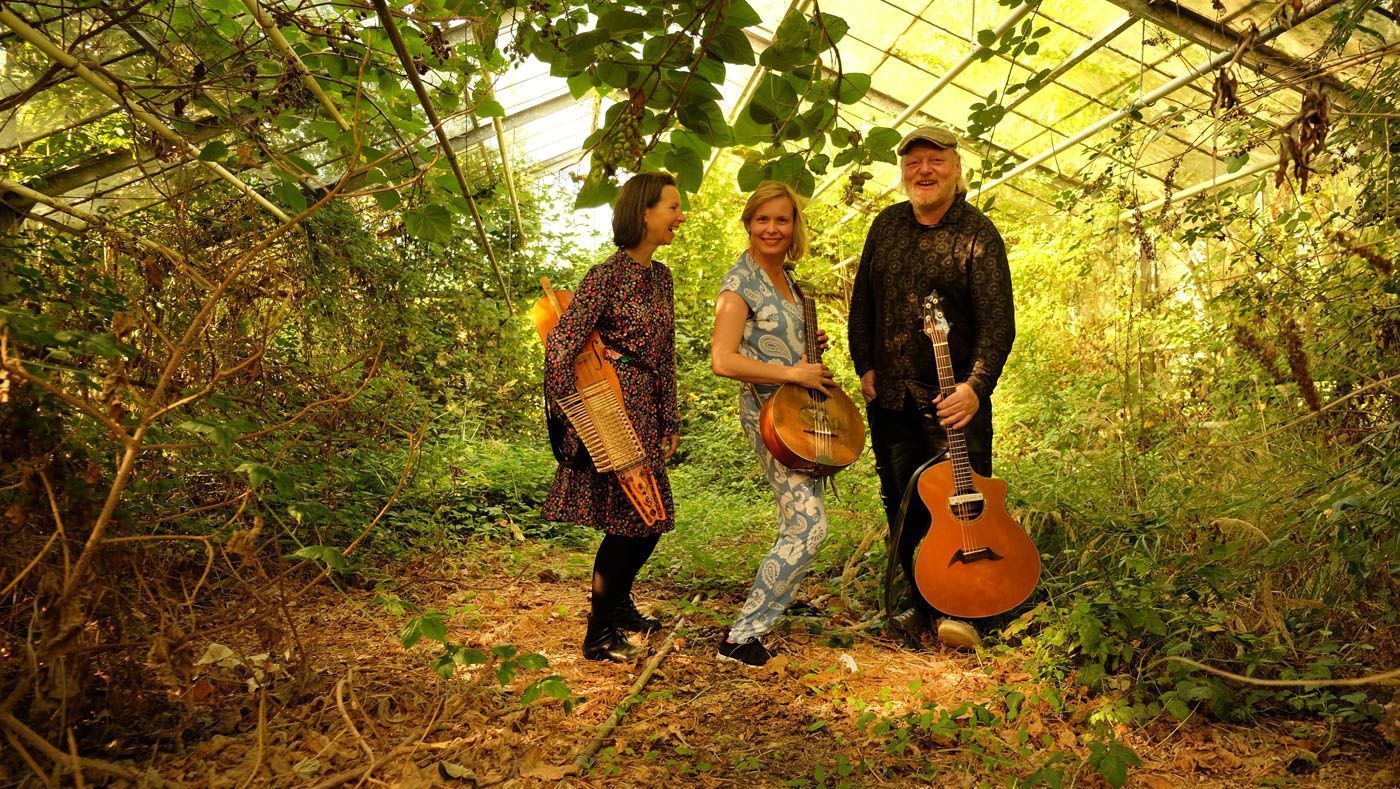
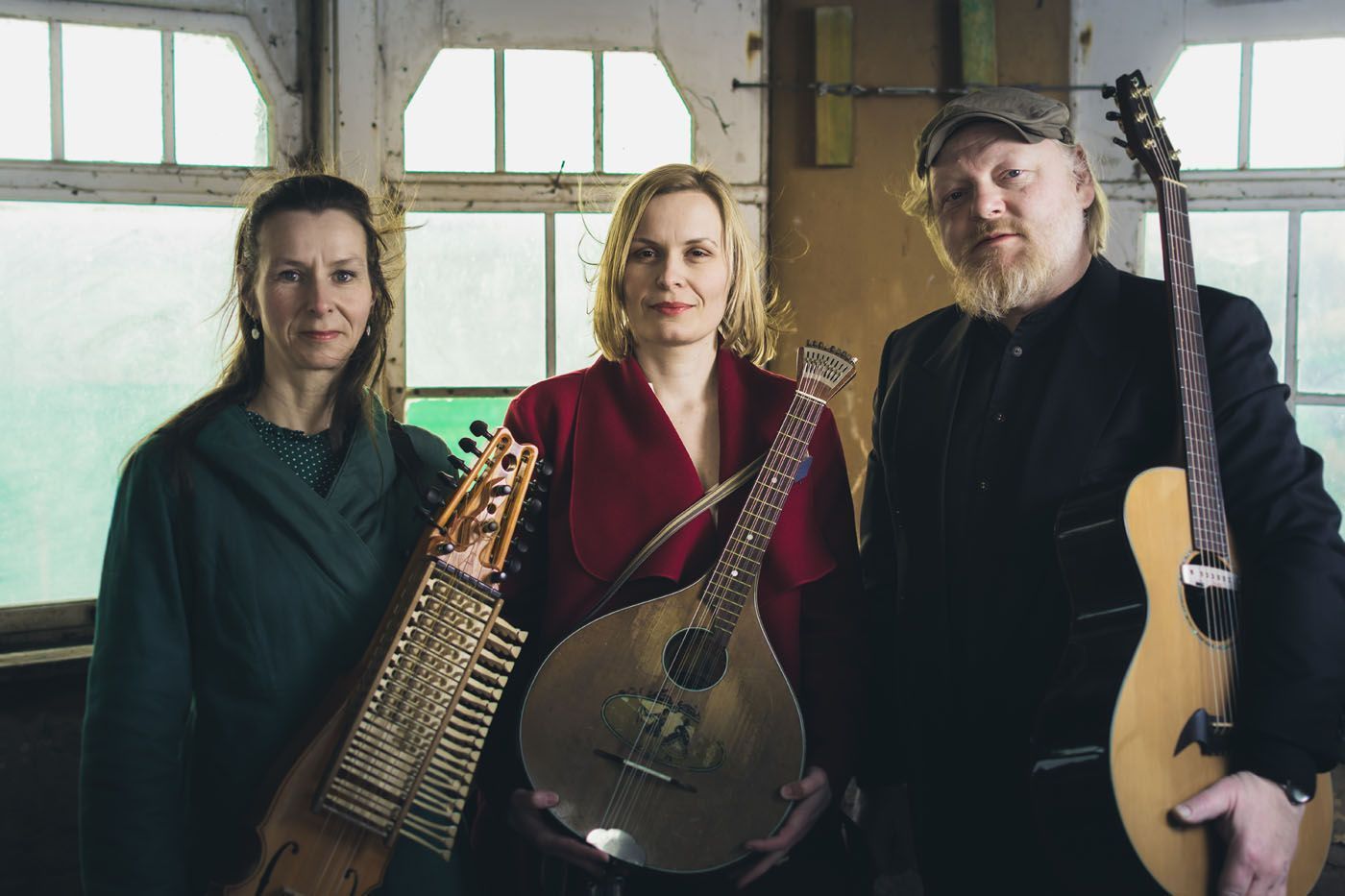
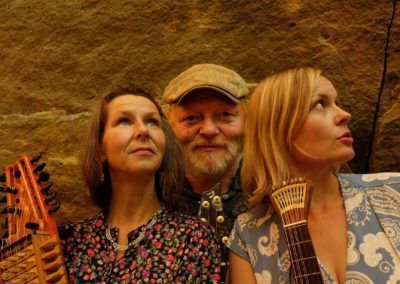
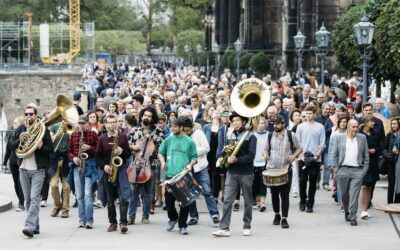
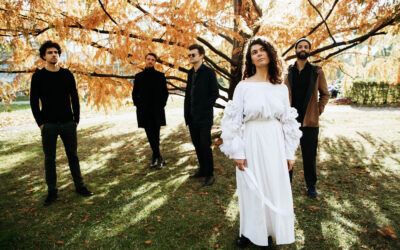
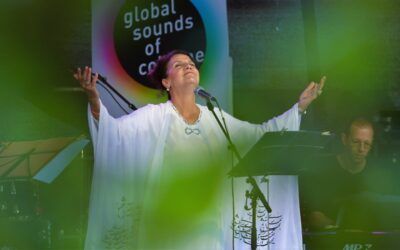


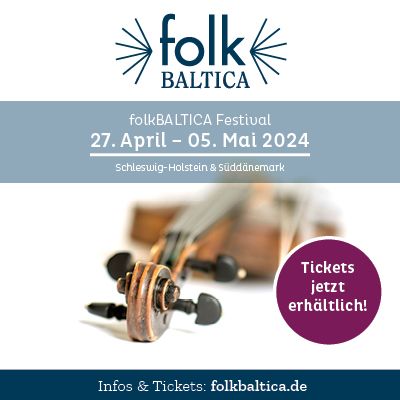

0 Kommentare